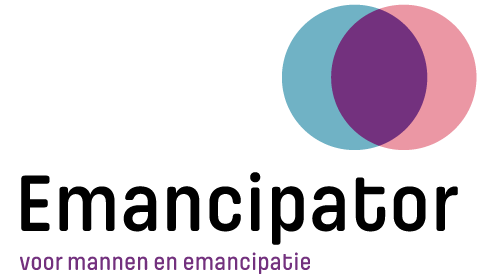Onderzoek “Learning to be a father”
De afgelopen weken hebben wij Frankie Johnson mogen verwelkomen in ons team voor een onderzoek naar vaderschap. In deze blog lezen jullie de uitkomsten van haar onderzoek.
Learning to be a father: intergenerational transmission
My partner and I had been together two and half years when we discovered I was unexpectedly pregnant – a baby did not figure in our immediate life plans, and neither of us were prepared in any way for the change a baby would bring. Thanks to a lot of reading, some antenatal classes, and excellent midwife support, we went into the birth feeling (relatively!) calm and confident. It was only in the postpartum haze that we realised, beyond the practicalities of keeping her alive, the much bigger issue was how we wanted to raise our daughter – which values were most important to us, which qualities did we want to encourage, and how did we want to present ourselves as role-models? Whilst we didn’t have any answers, these questions stayed with me and only became more compelling and fraught with difficulty as I immersed myself in my Gender Studies masters at Utrecht University. The course highlighted the insidious manifestation of gendered norms and expectations in our society, even in the most seemingly innocuous places, prompting me to critically reflect on the extent to which I had internalised harmful messages that I could unwittingly pass to my daughter, through my words or actions. This led me to evaluate our definition of ‘good’ parenting. Although this is clearly influenced, and perhaps reshaped, by mass media images and broader cultural values, as well as education, religious views, and examples in your community (the list goes on!) – what is the initial reference point for our understanding of how (or how not) to raise a child? The answer, of course, lies in our very first relationship: that with our own parents.
As part of my MA I was fortunate enough to complete an internship with Emancipator, which encouraged me to take a new perspective on gender equality, one driven by male emancipation. The internship granted me the opportunity to learn more about changing the position of, and ideas about, men and masculinity, and connected me to a European network of organisations working in a similar gender-transformative way. I chose to apply this approach to the parenting questions that had been bothering me – how do men develop their fatherhood identity, and how does that process interplay with both their relationship with their own father, and adherence to masculinity norms?
To interrogate the process and power of intergenerational transmission of fathering practices, I designed and launched a survey (inspired by IMAGES: the International Men And Gender Equality Survey) open to all fathers in the Netherlands. This forms a key part of my research, investigating how the subjective memory of the experience of being fathered shapes the parameters of an individual’s own approach to fathering (in terms of their understanding, expectation, performance and valuation of fatherhood). By examining the entanglements between fatherhood, memory, masculinity and identity, I hoped to deepen understanding of fathers in the Netherlands, enabling Emancipator and partners to better engage with this specific subgroup and consequently design and deliver more targeted support.
The results of the survey made for very interesting reading! Whilst the specific responses are of course confidential, an overview summary of the key findings reveals a complex relationship with the fatherhood identity, especially as it evolves over time.
Perceived evolution of fathering practices towards gender equality: participants understood themselves to be more engaged with their children than their fathers were, and viewed themselves as prioritising, and valuing their fatherhood identity more highly. In contrast, they perceived their own fathers focus to be primarily on paid employment. Participants also reported more gender-equal households in terms of the division of household and childcare labour.
Continuity of traditional models of fatherhood: despite this perceived shift in attitudes to family and domestic roles, dominant discourses of masculinity persevere, with participants mostly earning a higher income than their partners (despite these partners being equally well-educated and in employment), with many working long hours. Gendered parenting continues, with fathers typically taking responsibility for certain types of childcare-related tasks – generally those with a more “public facing” nature. This helps to highlight how persistent structural barriers continue to reinforce enduring gender norms.
Fathers serve as the starting reference point for parenting: when men become fathers themselves, they are forced to reconsider and reevaluate their own fathers, with a relatively even split between participants who chose to adopt and improve their fathers’ approach, versus those who reject their fathers’ approach, attempting to engage with their own children in ways they perceive they did not receive from their father. For better or worse, fathers provide a blueprint for their sons, serving as the original and lasting role model.
These findings are not (necessarily) representative of the broader Dutch population but rather apply only to the particular group who participated, which in large part was a broadly homogenous sample of middle-class, middle-aged, highly educated, secular white men in nuclear families.
I was reassured as well as surprised by the results, which made me revisit my initial assumptions about the progressiveness of Dutch society (particularly in comparison to the UK, my own background). These findings demonstrate clear progress towards gender equality, at least in the self-perception and presentation of white middle-class men, although there is plenty more work to be done. Emancipator helps speed this journey along, through its workshops and activities, which now can be strengthened even further by the insights of this research.
I plan to delve deeper into this topic for my thesis, supplementing this rich data with interviews with some of the fathers from the sample. If you would like to know more, or get involved, please reach out to f.m.n.johnson@students.uu.nl
My time with Emancipator, although challenging in terms of conducting research in a format new to me, and in another language, has connected me to a team of dedicated and knowledgeable colleagues; introduced me to a new and invigorating academic literature; and given me a taste of working for a charity in the Netherlands, a career direction I’m hoping to pursue post-graduation. This internship has been a key part of my masters, but, more importantly, has allowed me to investigate a topic of great personal interest and produce insights that can help develop Emancipator’s work. It has also prompted both myself and my partner to challenge the origin and nature of our views, values and enactments of parenting, in our journeys to becoming the best parents we can be.





